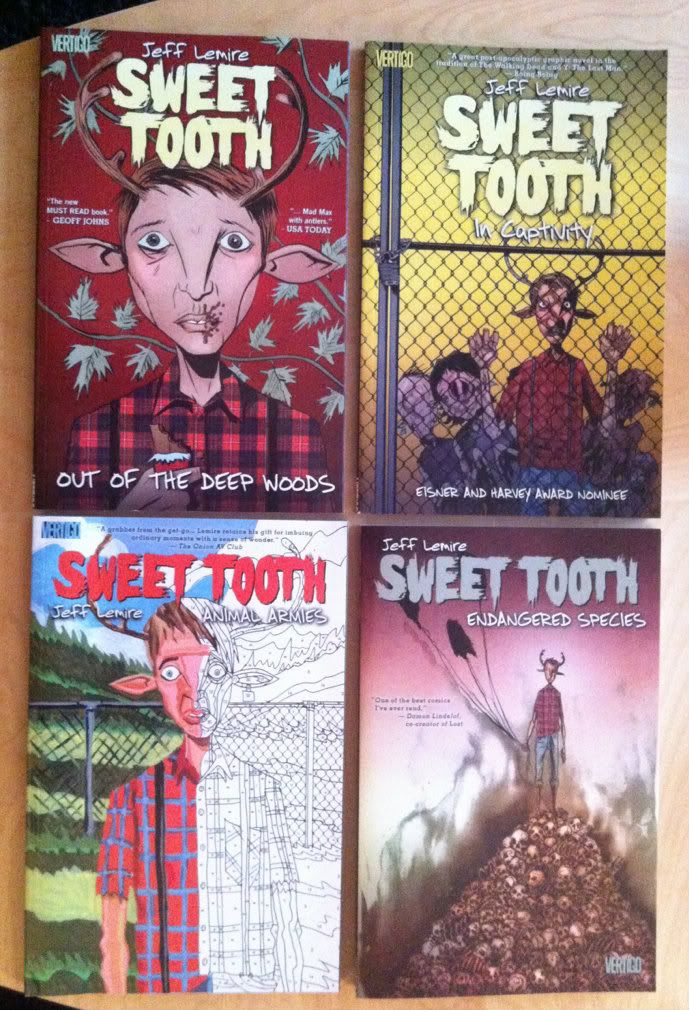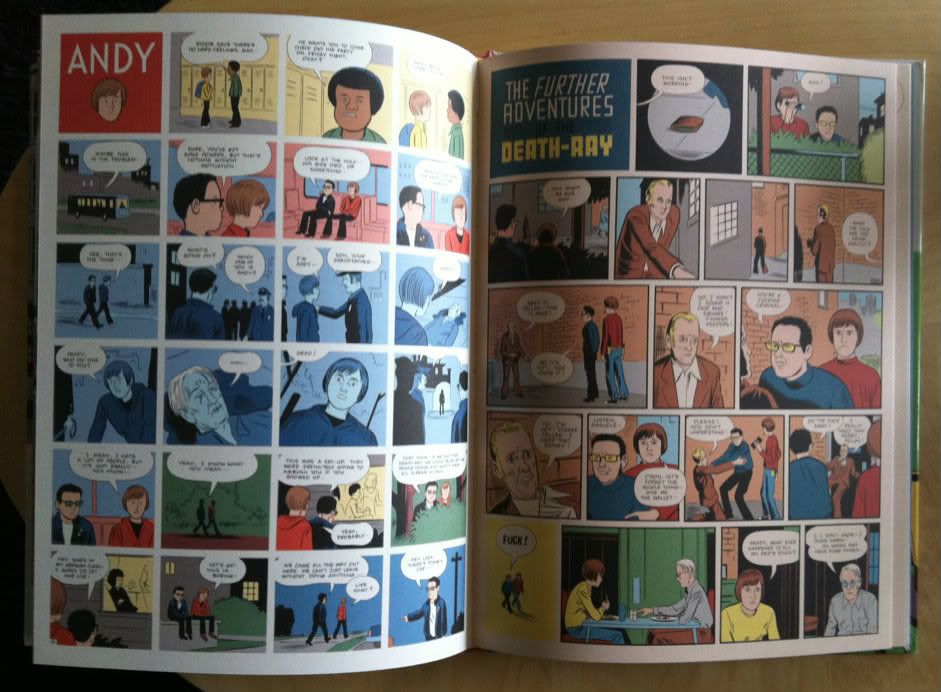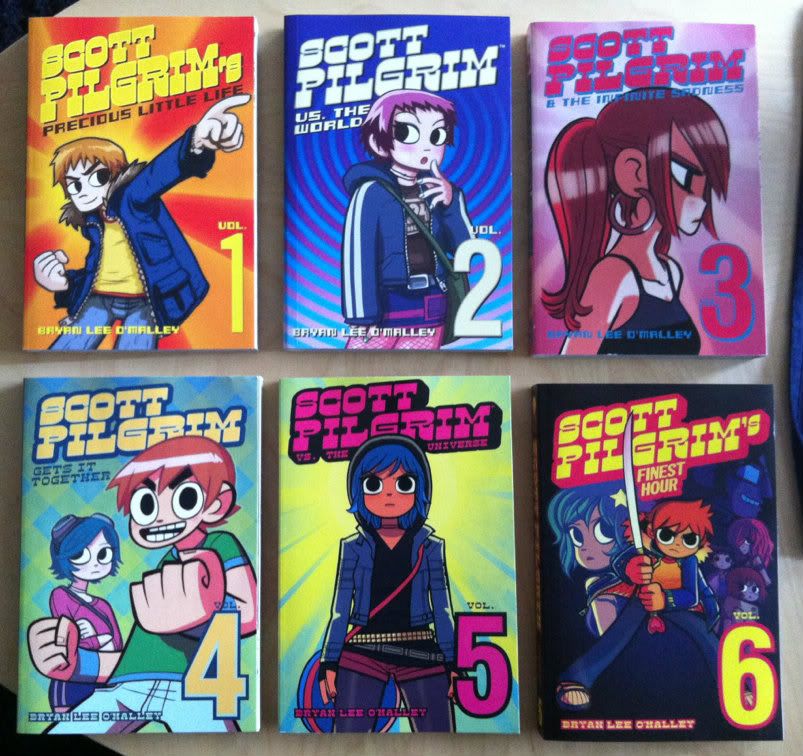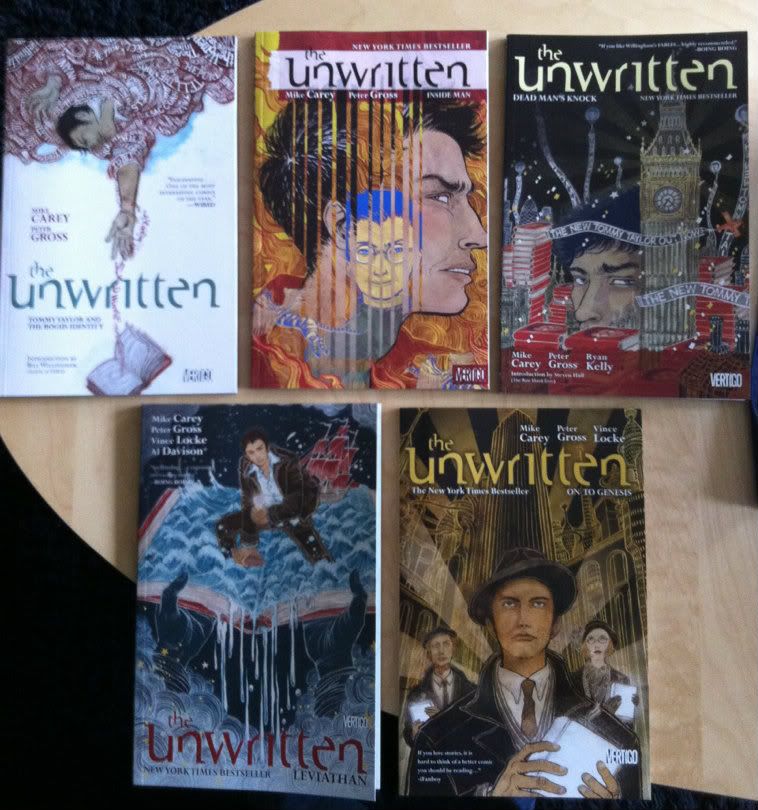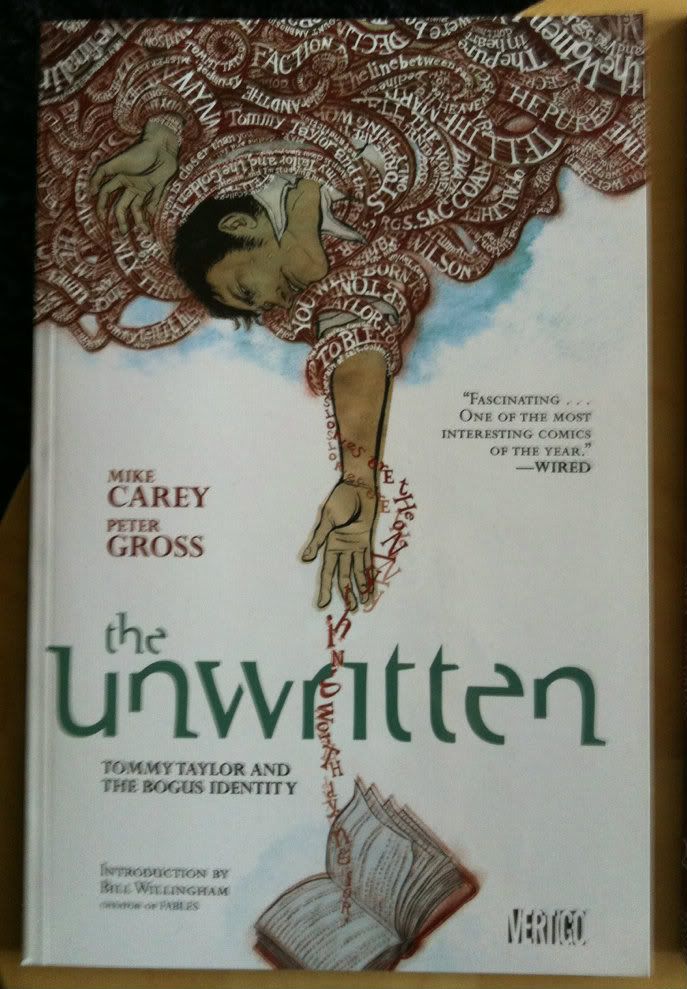A 250 word (or less) review of Sweet Tooth trade collections
1-4
By Jeff Lemire, Vertigo Comics
When I first picked up Sweet Tooth, one of the staff at my
comic shop described Jeff Lemire’s comics (particularly Essex County) as the comics
equivalent of Tragically Hip songs: things are literary, expressive, and direly
bleak in a Canadian prairies kind-of-way. Sweet Tooth to a certain extent fits this
description. The story takes place years after the majority of humanity was
wiped out by a mysterious plague and follows Gus, an animal-human hybrid (an
apparent byproduct of the plague) leaving his home for the first time, and
Jeppard, a violent man with questionable motivations, as they attempt to navigate
through the dangers of their world. The mystery of the animal-hybrid children
and the plague and… well, other things, are also integral to the plot, and the
deliberate and relentless unfolding of answers is a huge part of what makes Sweet
Tooth so engrossing. The interplay between characters is the other impetus to
the book as, cataclysmic plague and
pseudo-science-mythology aside, Sweet Tooth is mostly about family and human
connectedness even in the face of fantastic tragedy. Jeff Lemire writes a
thrilling and visceral script filled with unexpected twists and downright
merciless plot developments. His artwork; a kind of minimalist, sketchy,
expressionism often suffused with soft watercolours; punches home the
surrealism and bleakness of this plague ravaged world. I kind of feel Sweet
Tooth represents a bridge between the more genre and literary based comics
traditions: Jeff Lemire is a unique talent worth checking out.
Word Count: 245
